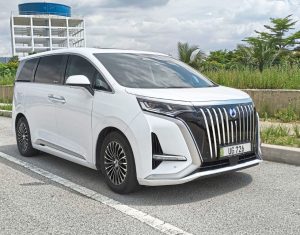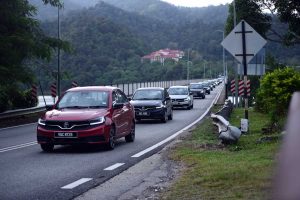BRATISLAVA: Slovakia's auto industry warned that Prime Minister Robert Fico's government risks hurting a dominant sector in the country with tax increases and a geopolitical shift away from key trade partners.
Foreign investors are spurning the eastern European Union member state because it's becoming too expensive - and unpredictable, according to Alexander Matusek, the head of Slovakia's Automotive Industry Association.
"Slovakia has lost competitiveness compared to other European countries," Matusek said in an interview in central Slovakia, citing a surge in production costs as well as Fico's lurch away from EU partners in the West. "Geopolitics plays a role," he added.
Fico's government has hiked corporate taxes and imposed new levies on banks and financial transactions as it seeks to curb the budget deficit and fund social programs.
At the same time, the Slovak premier is testing EU unity with a more confrontational foreign policy that leans toward Moscow and reforms that critics say undermine efforts to fight crime and media freedom.
German Chancellor Friedrich Merz this week warned that the bloc could take action against Slovakia.
The car industry, which accounts for about 10% of the country's gross domestic product, is particularly exposed to political turmoil.

About 90% of foreign direct investment comes to Slovakia from other EU nations.
"I don't see any clear foreign policy toward our most important partners," Matusek said on the sidelines of a car-industry conference in Slovakia's Tale mountain resort.
A recent survey among foreign chambers of commerce showed that 36% of European companies with assets in Slovakia would not invest in the country again, up from 19% just two years ago.
Volkswagen AG recently picked Portugal over Slovakia for its new electric ID.1 model, while Stellantis NV opted to place the production of a new EV in Spain instead of Slovakia.
"If no new models come, volumes will gradually shrink," Matusek said.
His words regarding costs were echoed by Wolfram Kirchert, chief executive officer of Volkswagen's Slovak unit, who told the forum that rapidly rising costs were "a big problem" for the sector.
He also expressed concerns about the government's unpredictable policies.
"Slovakia must strengthen this faith in the stability, reliability of the conditions to attract new products, because the decisions are made in the headquarters" of foreign companies, Kirchert said.
Fico has defended his policy when it comes to industry.
Last week, the premier said Slovakia remained an attractive destination, citing a planned battery plant by China's Gotion.
The project was announced in September 2023, before his return to power.
The country of 5.4 million people is home to car plants owned by VW, Stellantis, Kia and Jaguar Land Rover, plus an extensive network of suppliers.
The sector employs some 244,000 people and exports most of its output to other EU markets.
The scrutiny over Fico at home was laid bare by a rare rebuke by one of his key allies, President Peter Pellegrini.
The head of state told lawmakers on Wednesday that the premier needs to focus on maintaining Slovakia's western orientation.
"The West is not just one of four world directions in our foreign policy," Pellegrini said in an address to parliament, a reference to Fico's a sovereign foreign policy. "It's the most important one for Slovakia's national interests."
Fico responded, saying his government had no interest in jeopardizing EU and NATO membership: "Such a thing does not exist," he told reporters.












